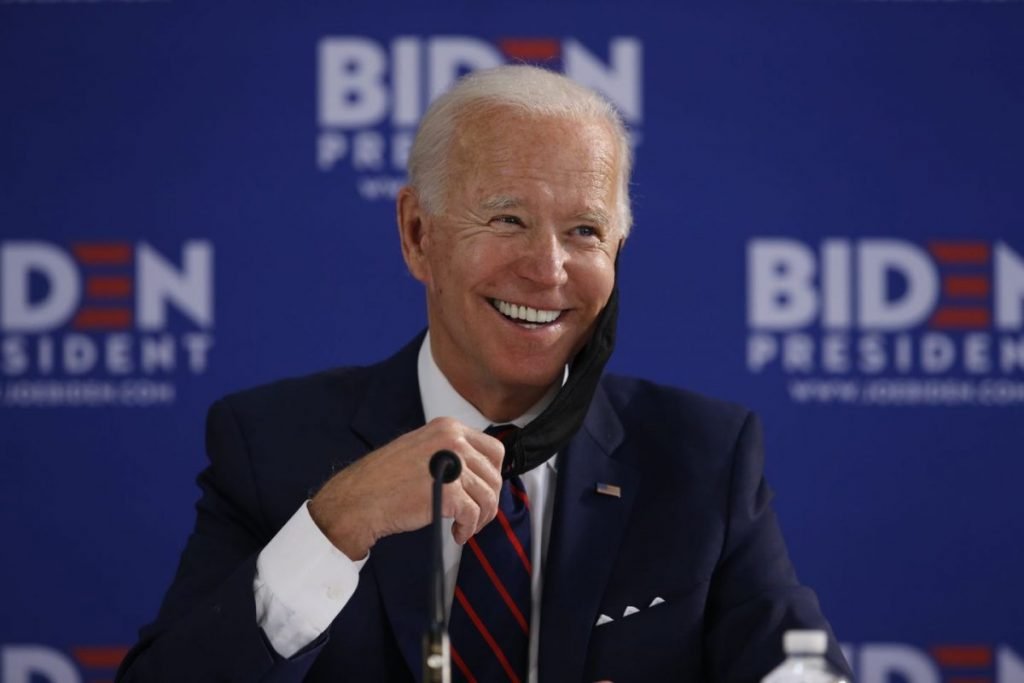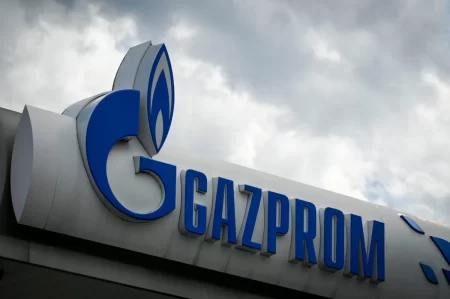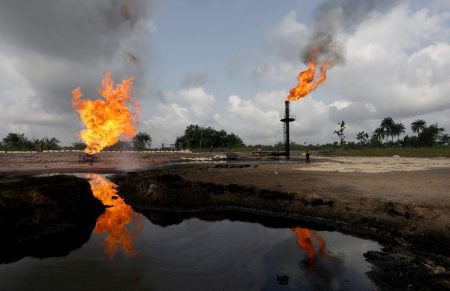
06 November 2016, Abuja — At the last annual conference and exhibition of the Nigerian Gas Association (NGA), the federal government indicated that about $51 billion worth of investment opportunities currently exist in Nigeria’s gas sector as the government also shared some of the enablers it was working on to help potential investors harness these opportunities. Chineme Okafor writes
As a first step to indicate its volte-face on gas as a genuine income source, Nigeria recently said it was willing to now take gas as a stand-alone sector and not consolidated with oil as it has been in the last decades of oil exploration and production in the country.
Standing before a good number of gas operatives and investors at the just concluded 13th annual conference and exhibition of the Nigerian Gas Association (NGA), the Minister of State for Petroleum Resources, Dr. Ibe Kachikwu, declared that a new national policy on gas was being worked on to give gas the kind of attention it deserves.
Shortly after Kachikwu made this disclosure, the Group Managing Director of the NNPC, Dr. Maikanthi Baru, also took to the podium and told the audience that a whopping $51 billion investment opening was laying idle in Nigeria’s gas sector.
Baru, in his remarks at the conference, noted that, in all, the midstream and downstream gas sector of the country were open for investment. He added that the country’s desire to grow her gas industry were hinged on these two segments getting the right investments.
The disclosures coming only some weeks after Kachikwu launched with President Muhammadu Buhari the government’s plans for the petroleum sector as contained in the ‘seven big wins’ policy, the conference offered the government an opportunity to sell its plans for gas to operators and investors.
Kachikwu, in this regard, took the chance and stated that with the yet-to-be gas policy, the government hoped to turn Nigeria into a gas-based nation – producing enough gas for her industrialisation and the export market.
He explained that the plan would make the domestic market a priority, completely cut off gas flaring before 2020 and then monetise the gas business as an alternative to income for the country.
“Government has developed a draft national gas policy…the draft gas policy promotes a competitive business environment for both current and new investors, articulates our vision for the sector and sets policy goals, strategies and an implementation plan for our medium to long-term targets for gas market development,” said Kachikwu.
He further explained: “Simply, our vision for the gas sector is to be an attractive gas-based industrial nation, giving primary attention to meeting local gas demand requirements, and developing a significant presence in international markets.”
Kachikwu noted that government would play a huge role in the sector’s evolution, providing the right conditions – regulatory, market and operational, to encourage the private sector as the investment drivers for gas.
According to him, under the plans, priority will shift to gas to power, industries, and transportation to create a willing market for gas, while conducive fiscal and regulatory regimes would be created to induce investment certainty.
In addition, the minister stated that key funding mechanism for infrastructure in the form of an infrastructure tariff will be developed to enable willing investors commit funds and recover costs of their investments in gas gathering facilities, gas processing, gas storage, transportation and distribution, in very clear and sustainable manners.
The Opportunities
Having listened to Kachikwu open up on the government’s plans, Baru then disclosed that the opportunities that could be tapped into by gas operators and investors in the country.
He said, “In the whole, about $51 billion investment opportunities exist today in the midstream and downstream gas sector to achieve the growth phase in Nigeria.”
“About $35.4 billion investment will be required in the gas exploration and production activities, power plants projects, fertiliser plants, virtual pipelines and flare gas commercialisation initiatives.
“Other areas with about $16 billion investment include Free Trade Zones (FTZ) infrastructure development and concessioning, port infrastructure, Central Gas Processing Facilities (CPF), gas transmission, Liquefied Petroleum Gas (LPG) plants, real estate development, pipe milling and local fabrication yards among others,” he added.
He stressed that investments in these segments had potentials for good returns on investment, especially with regards to the huge hungry market that exists in Nigeria.
Key Enablers
Baru also noted that there were some key enablers that would be required for the growth of the gas sector to be real. He listed them to include the new gas policy which Kachikwu talked about. According to him, it clearly defines the boundaries between upstream, midstream and downstream sectors, as well as opens good access for investment in midstream assets (processing facilities and transmission systems) which will also be governed by a network code where producers can process and transport their gas to the market across the country.
He also said that an appropriate pricing structure, guarantees for payment, enabling fiscal regimes, host communities engagement and conducive environment were some of the other enablers for investors to take advantage of the $51 billion gas opportunities.
“Beyond growing gas for the power sector, there has been a strategic positioning of the sector to support massive gas based industrialisation. The intent is to position Nigeria as the regional hub for gas-based industries such as fertiliser, methanol, petrochemicals, and central processing facilities,
“The first of this effort is the planned 30 square kilometre gas-based industrial park in Delta State. This will be Africa’s largest purpose built gas park supporting gas-based industries,” Baru stated.
He further explained: “As you can see we have a pragmatic roadmap for gas supply development growth to achieve our aspiration of growing current power generation capacity by at least a 3-fold increase within the next four years, position Nigeria as the African regional hub for gas-based industries and maintaining a 10 percent market share in global LNG trade with dominance in regional gas pipeline supplies.”
Gas Flaring and Supply Security
Knowing how tough the issues of gas flaring and supply security have become for Nigeria, Kachikwu equally spoke of the government’s firm plan to phase out flaring of gas in the country before 2020 and ensure that supply regimes are stable.
He said to ensure robustness in gas supply over the long term, gas terms for Production Sharing Contracts (PSCs) will be produced before the end of 2016, while exploration and development of new gas supply sources, from the inland and offshore basins will be actively encouraged in addition to the commencement of a national gas flare commercialisation programme in the first quarter of 2017.
“Gas flaring is still a prevailing practice in the petroleum industry. It is the position of the government that the protection of the environment is a more important objective than oil or gas production.
“Hence, the government is determined to ensure flare-out within the earliest possible time, preferably by year 2020. To achieve this, a number of measures will be introduced – gas utilisation will be a priority consideration over other considerations for handling of associated gas, and restrict undue re-injection of associated gas,” said the minister.
He also added that government would encourage the deployment of technology solutions for the capture and utilisation of associated gas, commercialise flared gas for supply into the domestic market, increase the gas flaring penalty to an appropriate level sufficient to de-incentivise the practice of gas flaring, as well as develop regulations to prohibit any greenfield gas project from moving forward until there is a proper integrated plan for the development of the hydrocarbons.
Operators’ Views
Notwithstanding the government’s enthusiasm, gas operators and investors however feel that it must show some leadership in transforming its plans into reality.
According to the communiqué from the NGA conference which contained their perspectives on the issues and government’s plans for gas, they posited that while they are willing to drive the sector’s growth, a meaningful investment should however be buoyed by government’s firm commitments, indicating that government should first put its money where its mouth is even with its present financial situation.
“Conference believes that financing is possible if the right conditions for success such as fixing the gaps in the value chain, avoiding policy summersault, honouring sanctity of contracts, stabilisation of the exchange rate, long-term view of fiscal policies are in place,” said the communiqué.
It added: “There exists the need for approximately $51 billion in investment in the sector to cover gas exploration, processing, transportation and general infrastructure.
Whilst acknowledging the funding constraints of government at this time, we still agree that such investments must be government led. It might require creative schemes to leverage the existing assets and infrastructure.
“The need to establish a Gas Promotion Council that will address investment opportunities in the sector was raised. The NGA puts itself forward to midwife same if it finds government’s interest.”



